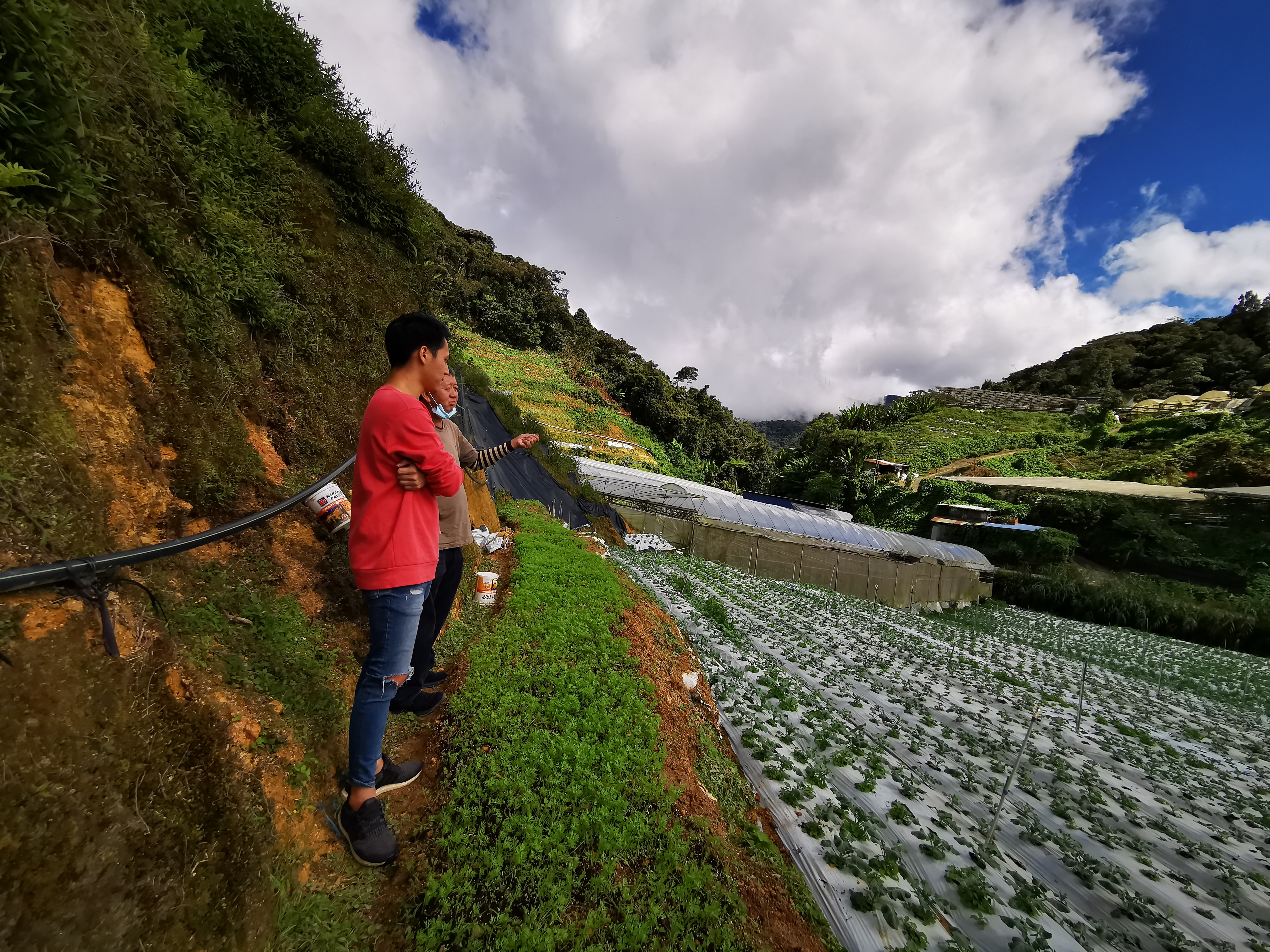D'Cottage Organics' vegetables are grown from local lowland and highland farms. With the highland being Cameron Highland and, lowland being Genting Sempah, Selayang, and Hulu Langat.
Though vegetables from Cameron Highland receive high nationwide popularity, not all highland crops taste better than lowland crops. For example, lowland choy sum (sawi hijau) grows shorter in size compared to Cameron choy sum, but they taste sweeter which makes them more preferred in Malay cuisine. The other types of lowland crops include ladyfinger (okra), brinjal (eggplant), petola (angled luffah), french bean, long bean, and many more. By having farms on highlands and lowlands, we can sustainably produce the best quality vegetables for our customers.
Our farms comply with the standard of Skim Organik Malaysia (myOrganic) set by the Ministry of Agriculture Malaysia. Organically grown vegetables are more sensitive compared to pesticide-grown vegetables, as humidity and heat affect crop production the most. Without the use of pesticides, the sweetness, texture, and crunchiness of our vegetables can be easily identified by people who have been consuming pesticide-grown vegetables. Although sometimes our crops tend to be smaller in size, it is completely normal as our farmers need to consider factors like the best harvest time or the maximum capacity that the produce can grow up to.
Just like any other plant, commercial vegetables require optimum temperature, humidity, moisture, and nutrients to grow. Oftentimes, a whole land of crops needs to be cleared and reseeded after a night of heavy rainfall. With Malaysia's constantly humid climate, our farmers have to find every possible way to overcome this problem. Since synthetic fertilizers and pesticides are not being used in organic farming, animal manure, and compost are extremely important to contribute to the growth of our crops. We strongly believe that every kind of nutrient we put into the soil, will eventually return to our body system as we consume our organic produce.
So, why organic living? Many have asked us why they should switch to organic living when they do not feel the immediate effect that organic produce pose to their body. Ask yourself this question: do you want to pay the farmers now, or pay the pharma later?
